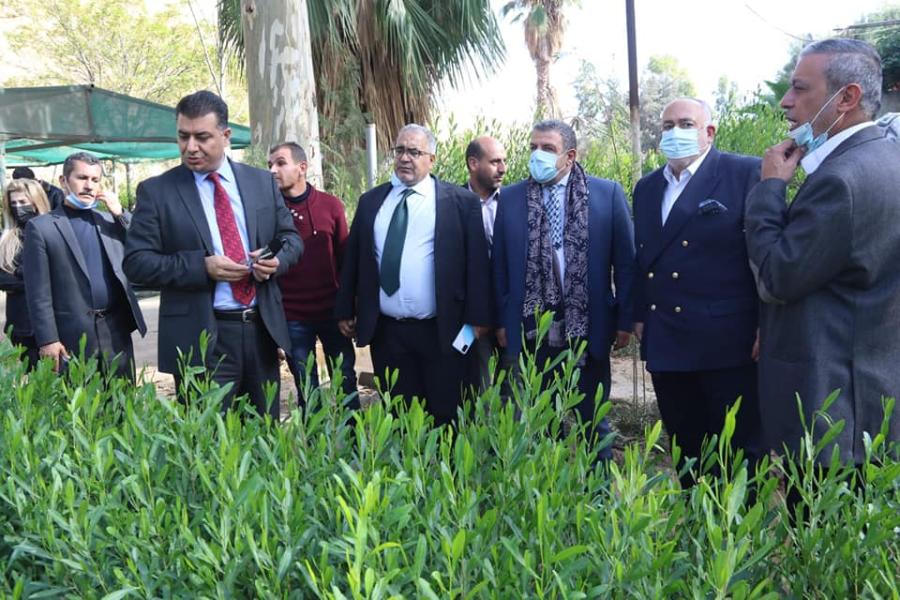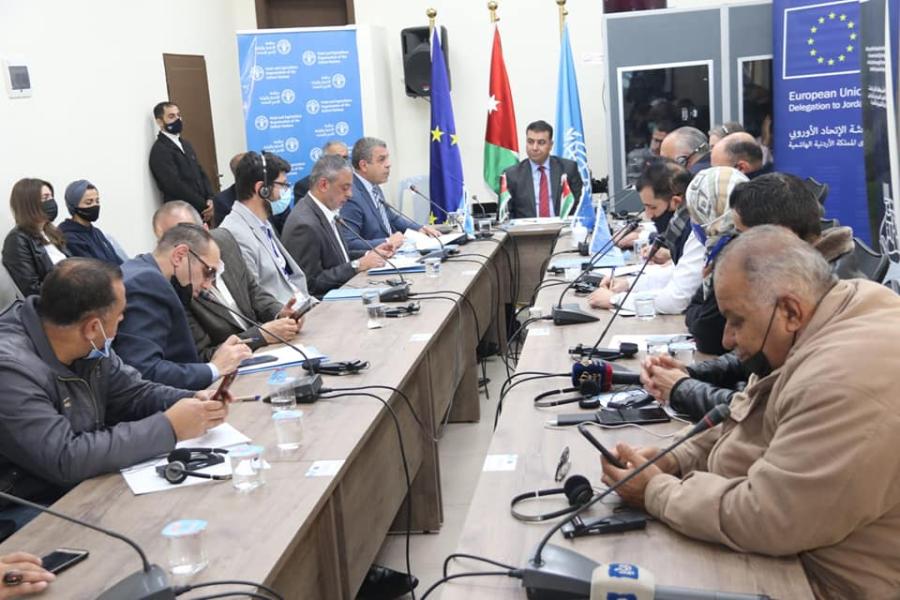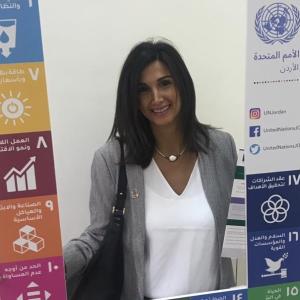FAO inaugurates 22 rehabilitated agricultural centres through EU-funded project in Jordan
06 December 2021
- The Food and Agriculture Organization of the United Nations (FAO) held a ceremony to mark the inauguration and handover of 22 rehabilitated National Agricultural Training Facilities to the Ministry of Agriculture (MoA) in Jordan.

The renovation was made possible through the “Enhancing resilient livelihoods and food security of host communities and Syrian refugees in Jordan and Lebanon through the promotion of sustainable agricultural development” project that is funded by the European Union through its Regional Trust Fund in Response to the Syrian crisis (MADAD). The project is implemented by FAO in cooperation with the Ministry of Agriculture, World Food Programme (WFP) and the International Fund for Agricultural Development (IFAD).
The handover ceremony was held under the Patronage of H.E. Eng. Khaled Hnaifat, Minister of Agriculture, and the Deputy Head of Cooperation at the EU Delegation in Jordan, Ms. Sirpa Tulla, in Jarash Governorate, which is one of the 22 rehabilitated centres across the 12 governorates; Amman, Irbid, Balqaa, Salt, Karak, Tafileh, Aqaba, Ajloun, Zarqa, Madaba and Mafraq. These facilities underwent rehabilitation works and were provided with equipment and tools required to host training programmes on climate-smart agriculture, sustainable management and utilization of natural resources, including land, water, climate and genetic resources for the benefit of Syrian refugees and host communities.

H.E Minister of Agriculture, Eng. Khaled Al-Hanaifat, confirmed that this project supports the ministry’s efforts in developing agricultural guidance and placing it within its guiding path for the sector, in a way that ensures the availability of training for farmers towards crops with more economic value, adequate for market requirements, and support food security.
Hanifat valued this support and cooperation from the partners, which represents a real and tangible achievement and alignment with the Ministry’s plans to develop and modernize the cadres of the Ministry and the agricultural sector.
The Deputy Head of Cooperation at the EU Delegation in Jordan, Ms. Sirpa Tulla said that, “The rehabilitation of 22 National Agricultural Training Facilities is within the framework of the “Enhancing resilient livelihoods and food security of host communities and Syrian refugees in Jordan through promoting sustainable agricultural development” project funded by the EU through its Regional Trust Fund in Response to the Syrian Crisis (MADAD), We are very proud to see the progress of the excellent partnership developed with the Government of Jordan and our UN partners."
FAO’s Representative in Jordan, Eng. Nabil Assaf, said “The conflict in Syria has triggered the world’s largest humanitarian crisis. Refugees from Syria are the biggest refugee population from a single conflict in a generation. FAO is glad to be in the forefront of the implementation of the EU Regional Trust Fund in Response to the Syrian Crisis (MADAD FUND) and contribute with our partners WFP and IFAD to addresses the socio-economic needs of Syrian refugees while also supporting overstretched local communities and their administrations.” he added “The new 22 training centres inaugurated today will enhance the ability of MOA and farmer groups to develop capacity of host and refugee’s communities.”
“We cannot ignore the importance of investing in natural ecosystems in a country like Jordan that has been impacted by climate change and stressed by limited natural resources. The EU-funded Madad project presents a great opportunity for the three Rome Based Agencies to work together under the leadership of the Ministry of Agriculture to support Jordan address its climate change challenges while creating sustainable livelihood opportunities to the most vulnerable.”Said Alberto Correia Mendes, Representative and Country Director of the World Food Programme.
The rehabilitation of the agricultural extension centres and building the capacity of their staff will enhance the farmer’s skills as individuals and groups, because after several years of conflict, refugees from Syria in the region and communities hosting them continue to require protection and assistance, with complex and evolving needs.
The new facilities will be used to run capacity building for farmers (Jordanian and Syrian refugees) as well as training of trainers - TOT to provide skilled teachers to support all current and planned education activities. The training supported by the project will focus on promoting climate-smart agriculture (CSA) with the aim of achieving three main objectives: sustainably increasing agricultural productivity and incomes; adapting and building resilience to climate change; and reducing and/or removing greenhouse gas emissions, where possible.
Background
“Enhancing resilient livelihoods and food security of host communities and Syrian refugees in Jordan and Lebanon through the promotion of sustainable agricultural development” project
The project responds to the reduced livelihood and food security levels as a result of the crisis in Syria, Jordan and Lebanon and intends to harness the impact of Syrian refugees for the local economic development, and to foster their integration and social cohesion through support to the agriculture sector in improving the agricultural productivity in addition to the creation of job opportunities for both host communities and displaced Syrians. The project will also promote social protection mechanisms for the benefit of the host farming communities and the displaced population.
About the EU Regional Trust Fund in response to the Syrian crisis, the EU Madad Fund:
Since its establishment in December 2014, a significant share of the EU’s non-humanitarian aid for Syria’s neighbouring countries is provided through the EU Regional Trust Fund in Response to the Syrian Crisis, the EU ‘Madad’ Fund. The Trust Fund brings a more coherent and integrated EU aid response to the crisis and primarily addresses economic, educational, protection, social, and health needs of refugees from Syria in neighbouring countries such as Jordan, Lebanon, Turkey and Iraq, and supports overstretched local communities and their administrations.
For more information about the EU Trust Fund, please visit https://ec.europa.eu/trustfund-syria-region/content/home_en






